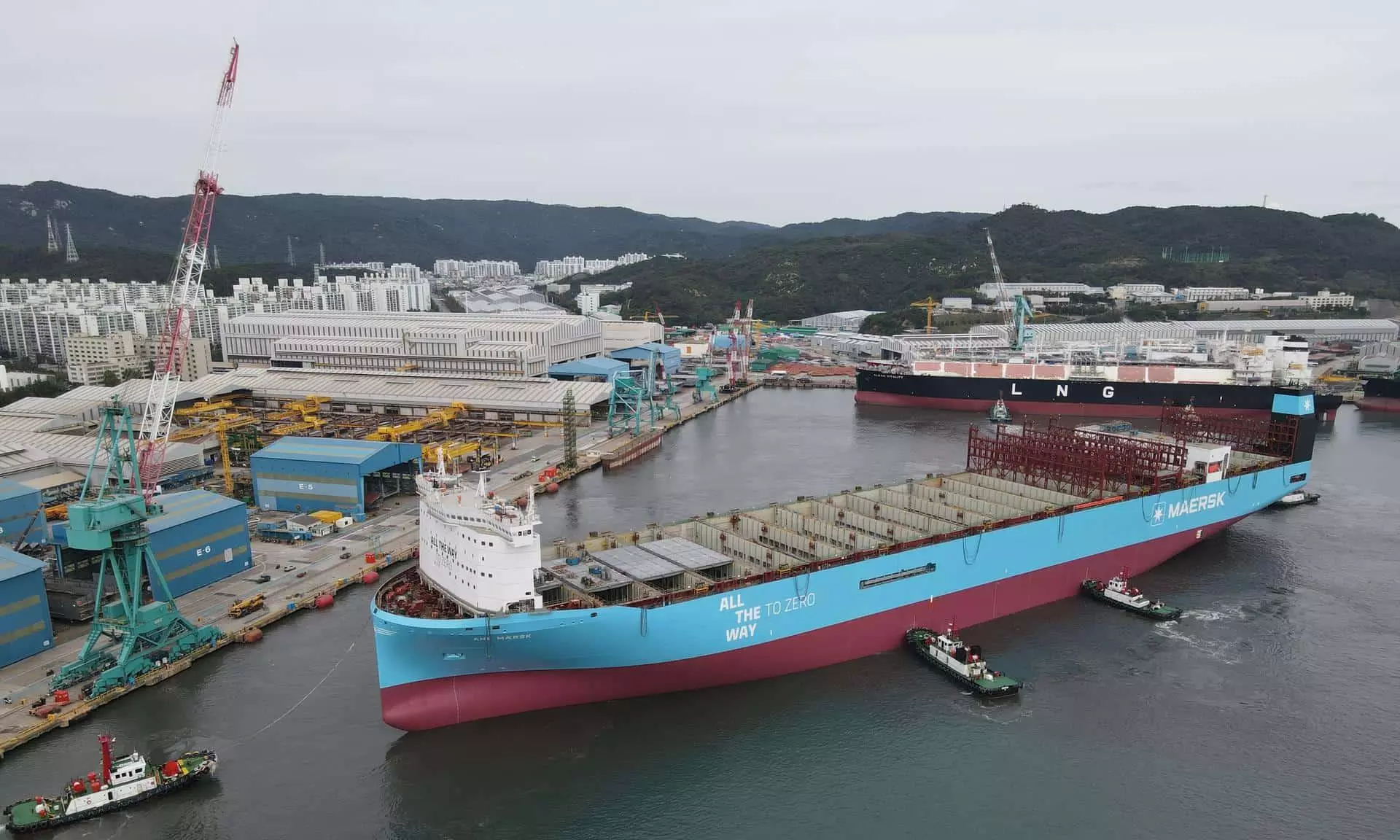Maersk names first large methanol-enabled vessel Ane Maersk
Ane Mærsk is the first of Maersk’s 18 large methanol-enabled vessels that will be delivered between 2024 and 2025

The world’s first large methanol-enabled container vessel has been named Ane Mærsk at a ceremony in the shipyard of HD Hyundai Heavy Industries in Ulsan, South Korea.
"The vessel is named after Ane Mærsk Mc-Kinney Uggla, Chair of A.P. Moller Foundation and A.P. Moller Holding. Ane’s eldest granddaughter served as godmother and christened the vessel by breaking a champagne bottle over the bow," says an official release from Maersk.
Ane Mærsk is the first of Maersk’s 18 large methanol-enabled vessels that will be delivered between 2024 and 2025, the release added. "It is the world’s second methanol-enabled container vessel. In the beginning of February, it will enter service on the AE7 string connecting Asia and Europe, marking a significant milestone in the company’s commitment to pioneering low-emissions shipping solutions. The vessels in the new series have an industry-first innovative design with the bridge and accommodation placed at the very front of the vessel, which ensures fuel efficient operations."
Vincent Clerc, Chief Executive Officer, Maersk says: “This series of vessels will have a transformative impact on our ambition to progress on our industry-leading climate ambitions. It is a visual and operational proof of our commitment to a more sustainable industry. With Ane Mærsk and her sister vessels, we are expanding our offer to the growing number of businesses aiming to reduce emissions from their supply chains."
Ane Mærsk will begin her maiden voyage on green methanol, and Maersk continues to work on 2024-2025 sourcing and bunkering solutions for its methanol-enabled vessel fleet, the release added.
The world’s first methanol-enabled container vessel will carry the name Laura Mærsk.
Maersk has an ambitious 2040 target of net zero greenhouse gas emissions and aims to transport a minimum of 25 percent of ocean cargo using green fuels by 2030.
Ane Maersk Story Fun fact: The vessel can load approximately 29,000 African elephants. *16,592 TEU or 2,000 RFEU (Reefer forty-foot-equivalent) *On deck: 6,856 TEU (21 rows/11 tiers) *On hold: 9,736 TEU (19 rows / 12 tiers) "Running on methanol, the vessel saves up to approx. 280t of CO2 per day compared to a sister vessel sailing on heavy fuels. When all 12 sister vessels are in operation and have replaced existing normal vessels, the CO2 savings will be approx. 1.5 million tonnes per year, which is almost double the CO2 emissions of the Municipality of Copenhagen in 2022." Methanol fact: Consumption of methanol is approximately double that of traditional fuel due to the lower energy density. Planned trade lane: Ningbo, Shanghai; Nansha, Yantian (all China), Tanjung Pelepas (Malaysia), Colombo (Sri Lanka), Port Tangiers (Morocco), Felixstowe (U.K.), Hamburg (Germany), Antwerp (Belgium), London Gateway (U.K.), Le Havre (France), Port Tangiers, Jeddah (Saudi Arabia), Abu Dhabi (UAE) and Jebel Ali (UAE). Bunkering: The vessel will bunker in Ulsan, Korea for the maiden voyage. |



